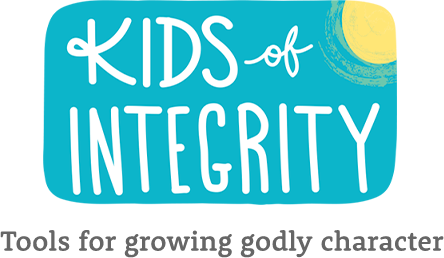Courtesy

Bible stories
Throughout the course of history, some things haven’t changed. In both the Old and New Testament times people struggled to control their emotions – and how they expressed those emotions – just as we do today.
Choose one or two of the following Bible passages to read to your children. If the passage is too difficult for your kids to understand, use the summary provided in the “key concepts.” Use the questions for discussion to help your children internalize the Biblical truths and apply them to their own life.
David has burning anger
Read Psalm 39:1-4,9,11.
Questions for discussion
- Have you ever felt “burning” anger?
- What did you say or do?
- How did David describe his anger?
- Who did David talk to when he was mad?
- Why did David remain silent?
Key concepts
It can be hard to restrain ourselves from saying things we shouldn’t. In Psalm 39, David said he remained silent when he was angry because he recognized that God was in control. Talking to God and remembering that God is in control can help us stay quiet even when we feel like yelling or saying hurtful things to others. God gives us instructions in the Bible to help us stay in control of the words we say (James 1:19-20). Pray, asking that God would give you wisdom to talk to him first when you are angry or upset as David did.
Courteous communication habits
Read James 1:19-20.
Questions for discussion
- Do you prefer talking or listening?
- Which is easier for you to do?
- What is the first thing many people do when they get mad?
- What should we do first?
- What should we be slow to do?
- Why should we be slow to speak and become angry?
- If we were to follow the Bible’s instructions on communication, how would things be different at our house?
Key concepts
The Bible has very clear instructions on how to have harmony in communication. James wrote that we are to be quick to listen, slow to speak and slow to get angry. Most people use poor communication skills, rather than those described in the Bible. Communication works better when we are focused on listening rather than speaking. Choosing to be patient and forgiving, rather than being quick to get angry with each other, helps keep our home peaceful.
Have your children practice filling in the blanks in this phrase from James 1:19: “Everyone should be quick to ________, slow to ________ and slow to become ________.”
Now pray James 1:19 aloud, allowing your children to fill in the missing words as you pray.
Building what?
Read Psalm 52, Ephesians 4:29 and Jeremiah 9:23-24.
Questions for discussion
- How do you feel when someone brags about what they have done?
- How do you feel when another kid keeps talking about a new toy they have?
- Do you like it when people talk about themselves a lot?
- In Psalm 52, what were the people boasting about?
- What do you or your friends boast about?
- What will God do in the end for the person who boasts about evil?
- Does boasting encourage others?
- What kinds of things can we say that do help build others up?
- In Jeremiah 9:23-24, what does it say we should boast about?
Key concepts
It is better to let others praise us than to praise ourselves. No one likes to hear people boast and brag. We encourage others when we say kind things about them. The Bible tells us that the only thing that we should boast about is knowing God.
Close by praying a prayer similar to this one: “God, please watch over the door of my mouth so that I do not brag about myself. Instead, help me to think of things that I can say to encourage and build others up.”
Where does our talk come from?
Questions for discussion
- Have you ever said something that hurt someone else’s feelings?
- What were you thinking at the time you said it?
- Were you happy, sad, mad or just careless?
- Read Matthew 12:34-37. Where do our words come from?
- Who will ask us to give an account of every word we have said?
- Read Psalm 139:1-4. Who knows what we are thinking?
- Who knows how we feel?
- Who knows what we are going to say before we say it?
- Read Psalm 141:3. Who can help you to be careful about the words you say?
Key concepts
Before we speak, it is important to consider how we are feeling. Prior to voicing our thoughts, we should ask ourselves, “Am I angry, sad, hurt, jealous or feeling bad in some other way? Then we need to take those feelings to God and ask Him to help us get our feelings under control before we speak. God already knows what we are feeling and thinking. He is our best helper in times when we are frustrated, upset, angry, hurt or disappointed. God can help us control our emotions and allow us to speak to others with gentleness, kindness and respect, even though we are feeling bad.
Close by reading 1 John 1:9. Pray together, asking God to forgive any sins like hatred, discord, fits of rage, selfishness and envy and to fill your hearts with love, joy, peace, patience, kindness, goodness, faithfulness and gentleness instead (Galatians 5:22-23).
Please listen to me!
Read Proverbs 16:21,24.
Questions for discussion
- How do you feel when someone speaks harshly to you?
- What kind of animal sounds harsh when it is upset?
- How do you feel when someone speaks gently to you?
- What kind of animal makes gentle sounds?
- When you are trying to get someone to listen to what you are saying, what do you do?
- Who would you rather listen to – someone who is yelling or someone who is speaking calmly?
- Do you think the Bible can give us wise counsel on how we should speak in order to make others want to listen to us?
- What does the Bible say about speaking gently?
- When do you yell like a ________? (Name the animal selected for question 2).
- When do you sound like a ________? (Name the animal selected for question 4).
Key concepts
It’s tempting to raise our voices, talk louder or yell to get others to listen to us. But when we speak with soft and gentle words, others are more likely to listen to us than when we yell or scream. Let’s pray, confessing that at times we have spoken with harsh or unkind words. Let’s ask God to help us speak with pleasant and kind words instead.
Give your children the opportunity to pray, repeating your words after you.
The best way to say, “I love you”
Questions for discussion
- Does an angry dog wag its tail? Or does an angry cat purr?
- What does an angry dog do? What does an angry cat do?
- Has anyone ever told you they feel a certain way, but you know or suspect that they are really feeling another way?
- Read 1 John 3:16-18. What type of actions fit with the words, “I love you”?
- How can we do this in our home?
- How can we do this in our community?
Key concepts
Actions that express concern for the needs of others indicate love for that person. Saying “I love you” carries little meaning unless it is accompanied by actions that show love. Pray, asking God to help you show love to others through actions and words.
- Acceptance
- Adaptability
- Attentiveness
- Christmas
- Compassion
- Confidence
- Consideration
- Contentedness
- Cooperation
- Courage
- Courtesy
- Discernment
- Easter
- Faithfulness
- Forgiveness
- Generosity
- Gentleness
- Gratitude
- Harmony
- Honesty
- Humility
- Joy
- Kindness
- Obedience
- Patience
- Perseverance
- Respect
- Responsibility
- Reverence
- Righteousness
- Self-control
- Thanksgiving

